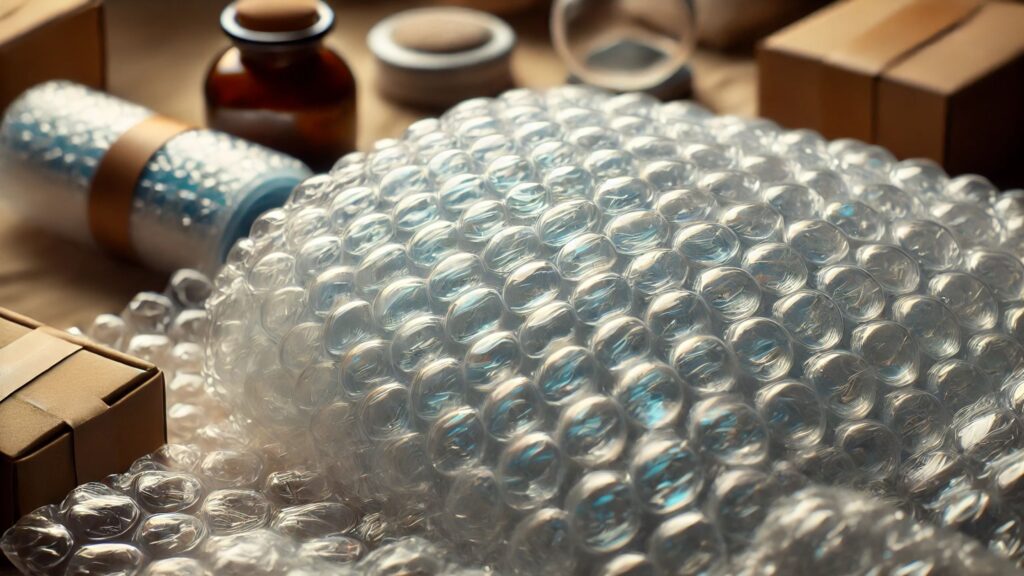When it comes to shipping and storage, ensuring your items remain safe and intact is a top priority. One of the most reliable packaging materials available is bubble wrap packaging. Whether you’re protecting delicate electronics, fragile glassware, or valuable collectibles, bubble wrap provides an essential layer of cushioning to prevent damage.
What is Bubble Wrap Packaging?
Bubble wrap packaging is a lightweight, flexible plastic material that contains evenly spaced air-filled bubbles. These bubbles act as a cushion to absorb shocks and vibrations, making it an ideal choice for safeguarding fragile and breakable items. Available in various sizes and thicknesses, bubble wrap can be customized to suit different packaging needs.
Benefits of Using Bubble Wrap Packaging
- Superior Protection – The air-filled bubbles create a protective barrier that absorbs impact and reduces the risk of breakage.
- Lightweight & Cost-Effective – Despite its durability, bubble wrap is lightweight, which helps minimize shipping costs.
- Versatile & Flexible – It can be easily cut and wrapped around items of all shapes and sizes.
- Reusable & Recyclable – Many types of bubble wrap can be reused multiple times, making it an eco-friendly packaging option.
- Moisture Resistance – Bubble wrap provides an additional layer of protection against moisture, keeping products dry and secure.
Different Types of Bubble Wrap Packaging
- Standard Bubble Wrap – Ideal for general-purpose protection and commonly used for shipping fragile items.
- Anti-Static Bubble Wrap – Designed for electronic components, preventing static buildup that could damage sensitive devices.
- Self-Adhesive Bubble Wrap – Features a sticky side for secure wrapping without the need for tape.
- Heavy-Duty Bubble Wrap – Offers enhanced thickness and durability for extra protection of valuable or large items.
How to Use Bubble Wrap Effectively
- Wrap Items Completely – Ensure full coverage for maximum protection.
- Place the Bubbles Facing Inward – This provides better cushioning against shocks.
- Secure with Tape – Use packaging tape to keep the wrap in place and prevent unwrapping during transit.
- Layer for Extra Protection – For extremely fragile items, use multiple layers to enhance shock absorption.
Eco-Friendly Alternatives
While traditional bubble wrap is made of plastic, many companies now offer biodegradable and recyclable options. Look for eco-friendly alternatives made from recycled materials to reduce environmental impact.
Conclusion
Bubble wrap packaging remains one of the best solutions for protecting fragile items during shipping and storage. Its lightweight nature, affordability, and superior cushioning make it an essential tool for businesses and individuals alike. By choosing the right type and using it effectively, you can ensure your items arrive at their destination safely and intact.
Whether you’re a small business owner, an online seller, or simply moving to a new home, incorporating bubble wrap packaging into your shipping process is a smart and reliable choice!
Related Articles
- The Art and Science of Packaging | Trends, History & Future
- Protective Packaging Materials: Ensuring Product Safety and Sustainability
- Shrink Packaging: The Ultimate Solution for Product Protection and Presentation
- Cosmetic Packaging: Trends, Sustainability & Brand Identity
- Candle Packaging: Enhance Your Brand with Creative & Sustainable Designs
- The Future of Sustainable Food Packaging: Innovations and Trends
- The Art of Chocolate Bar Packaging: A Sweet Blend of Design and Functionality
- T Shirt Packaging: The Ultimate Guide to Making a Lasting Impression
- Types of Tertiary Packaging: Essential Solutions for Logistics & Shipping
- Tertiary Food Packaging: An Essential Component of the Supply Chain

